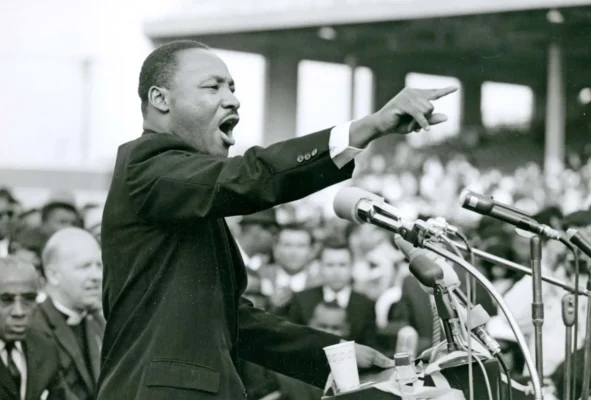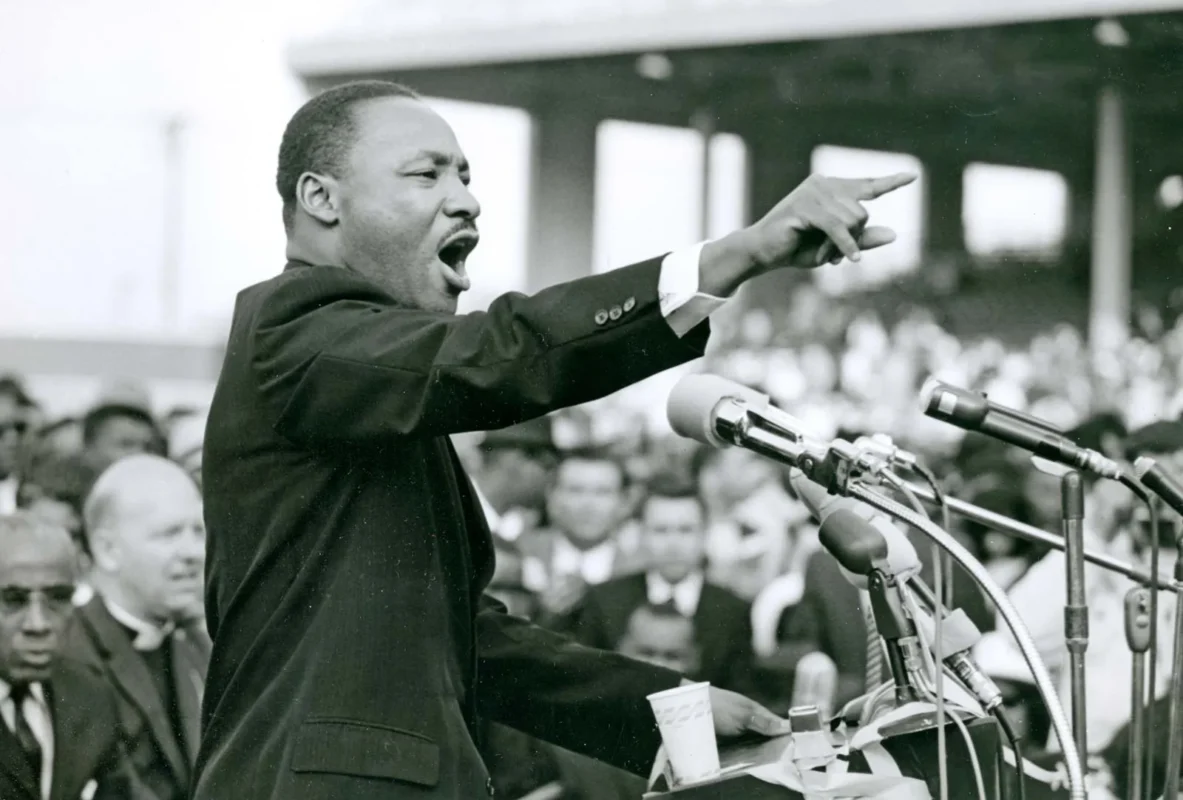Martin Luther King Jr.: A Life Fighting for Equality
Early Life and Education:
- Born Michael King Jr. on January 15, 1929, in Atlanta, Georgia, to a prominent Baptist minister family.
- Completed high school at 15 and attended Morehouse College, graduating with a sociology degree in 1948.
- Continued his education at Crozer Theological Seminary in Pennsylvania, becoming the first Black president of its senior class.
- Obtained his doctorate in Systematic Theology from Boston University in 1955, meeting and marrying Coretta Scott during his studies.
Rise to Prominence:
- In 1954, became pastor of Dexter Avenue Baptist Church in Montgomery, Alabama.
- The Montgomery Bus Boycott (1955-1956) catapulted him to national attention after Rosa Parks’ arrest for refusing to give up her seat to a white man.
- Led the boycott using nonviolent civil disobedience tactics, influenced by Mahatma Gandhi’s teachings.
- Co-founded the Southern Christian Leadership Conference (SCLC) in 1957, focusing on nonviolent activism for civil rights.
Landmark Campaigns and Achievements:
- Organized and led successful campaigns against segregation in public transportation, schools, and other facilities across the South.
- The March on Washington for Jobs and Freedom in 1963 delivered his iconic “I Have a Dream” speech, advocating for racial equality and justice.
- Played a crucial role in the passage of the Civil Rights Act of 1964 and the Voting Rights Act of 1965, dismantling legal segregation and expanding voting rights for Black Americans.

Expanding Vision and Tragic End:
- In his later years, broadened his focus to include economic justice and opposition to the Vietnam War.
- Planned the Poor People’s Campaign, a multiracial movement addressing poverty and economic inequality.
- Tragically assassinated on April 4, 1968, in Memphis, Tennessee, leaving a legacy of nonviolent resistance and social justice.
Lasting Legacy:
- Considered one of the most influential figures in American history, remembered for his unwavering commitment to racial equality and nonviolent activism.
- His legacy continues to inspire movements for social justice and human rights around the world.
Additional Information:
- Awarded the Nobel Peace Prize in 1964 for his “nonviolent resistance for civil rights.”
- Posthumously awarded the Presidential Medal of Freedom in 1977 and the Congressional Gold Medal in 2003.
- His birthday is a federal holiday in the United States, celebrated on the third Monday of January.
This is a brief overview of Martin Luther King Jr.’s life and achievements. If you’d like to delve deeper into any specific aspects, please let me know!

